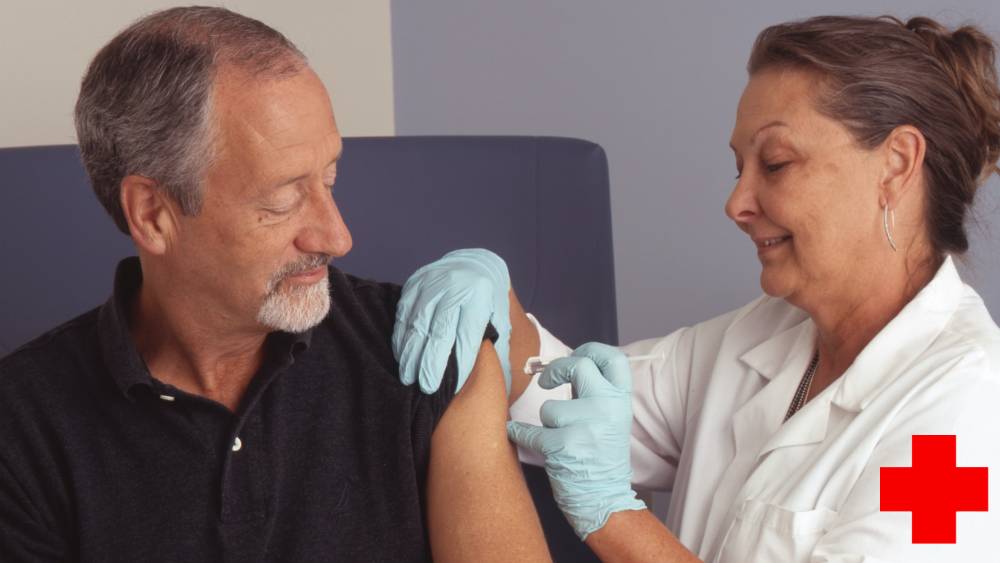Dear esteemed reader, welcome to an interesting and enlightening read on becoming an Advanced Practice Registered Nurse (APRN)!
This article is embedded with all the relevant details on how to kick-start your Nursing career in the Advanced Practice Registered Nurse specialty.
At the end of this read on How to Become an APRN, you’ll know the education and clinical requirements to become an APRN.
We’ll shed light on the following key issues:
- Introduction to Advanced Practice Nursing Programs
- Steps to Advanced Nursing Practice
- Continuing Education Requirements for Nurse Practitioners
- APRN Degree Skills
Relax, get a cup of popcorn, and let’s have an enjoyable read!
Overview of APRN

Becoming an Advanced Practice Registered Nurse is a great way of boosting your nursing career.
The APRN role ensures a high job demand, increased earning potential, and greater job freedom.
It gives room for field specialization.
For instance, you may decide to become a Certified Registered Nurse Anesthetist (CRNA), Clinical Nurse Specialist (CNS), Certified Nurse Midwife (CNM), or Certified Nurse Practitioner (CNP).
There are numerous Advanced Practice Nurse specialties under the CNP that you can further specialize in.
They include Adult-Gerontology Acute Care Nurse Practitioner (AGACNP), Neonatal Nurse Practitioner (NNP), Psychiatric Mental Health Nurse Practitioner (PMHNP), Pediatric Nurse Practitioner (PNP), Women’s Health Nurse Practitioner (WHNP), Family Nurse Practitioner (FNP), and Acute Care Nurse Practitioner (ACNP).
Though the educational paths to each of these specializations aren’t the same, we’ll give an overview of how to realize your APRN dream.
Steps on How to Become an APRN

Although the journey to becoming an Advanced RN is unique, the steps listed here are common to them all:
Step 1: Earn an Associate or Bachelor of Science in Nursing (BSN) Degree
You need a minimum of an Associate Degree in Nursing (ADN) to become a Registered Nurse (RN).
You must also pass the National Council Licensure Examination for Registered Nurses (NCLEX-RN) before starting a nursing career.
If you’re ADN-certified, you must earn a bachelor’s degree to qualify for a master’s degree program, the most essential in APRN requirements.
Fortunately, there are many part-time and full-time online BSN programs you can take from your closet.
Such programs require two years of intensive studies and clinical practice to earn your bachelor’s degree.
However, it’s always easier to acquire a bachelor’s degree before earning an RN license because most employers prefer candidates with a BSN for an entry-level role.
Step 2: Earn an Advanced Nursing Degree
A Master of Science in Nursing (MSN) program involves classroom learning and clinical practice in a given health care setting for two years.
For example, if you want to become a Psychiatric Nurse Practitioner (PNP), your coursework will be based on this specialty.
Your MSN program must be specific because you’ll become an Advanced Practice Nurse after the program, and you must demonstrate depth and knowledge in your chosen field.
However, an MSN isn’t the highest nursing degree for Nurse Practitioners.
Many stakeholders, including the American Association of Nurse Practitioners (AANP), formerly known as the American Academy of Nurse Practitioners, advocate that a doctoral degree should be the minimum requirement for APRNs.
Thus, if you don’t want your APRN position to be threatened in the future, earn a doctoral degree as soon as possible.
A Doctor of Nursing Practice (DNP) program usually takes 18 months to 4 years.
You can take your graduate degree program in an online or conventional format.
Most health care providers prefer online Nurse Practitioner schooling because it gives them the flexibility to work simultaneously.
However, if you’re taking an online program, you’ll need to complete on-site clinical hours at a given location.
A DNP program in public health aims to enhance your competency; it’s to ensure you’re an expert in your field.
Before you enroll in any nursing education program, check the accreditation status of the selected institution because there are many unaccredited nursing schools around the country.
Taking your graduate degree program in an unaccredited institution will deny you the must-have Advanced Practice Registered Nurse licensure.
Step 3: Garner the Required Hours of Clinical Experience
Apart from fulfilling the BSN, MSN, and DNP coursework requirements, you also need to meet the required hours of clinical experience for APRN practice.
The clinical experience you possess gives your APRN degree meaning; practical experience is more cherished than theoretical knowledge.
Your institution and specialty will determine your clinical experience requirements.
For instance, Nurse-Midwives need 600 to 1,200 clinical hours; Certified Registered Nurse Anesthetists need at least 2,000 hours and administration of 850 Anesthetics, while Nurse Practitioners need 500 hours.
The clinical hours differ because APRNs serve different patient populations with divergent health needs.
For example, an Adult-Gerontology Primary Care Nurse Practitioner (AGPCNP) and a Family Nurse Practitioner (FNP) don’t need the same training requirement because they target different clients and circumstances.
Advanced Practice Nursing hopefuls need 2 to 5 years to garner clinical experience.
Step 4: Ace the National APRN Certification Exam
Regardless of your specialty, you must ace a national certification exam to earn your APRN license, but your specialty will determine the specific exam to take.
Check with your state board of nursing to know the appropriate credentialing center for your specialty.
For instance, the American Nurses Credentialing Center (ANCC) and the American Association of Nurse Practitioners (AANP) certify Nurse Practitioners.
Thus, you approach either of these organizations if you want to take the National Family Nurse Practitioner (FNP) exam or Oncology Nurse Practitioner Exam.
On the other hand, the Pediatric Nursing Certification Board (PNCB) organizes the exam for intending Pediatric Nurse Practitioners.
The National Board of Certification and Recertification for Nurse Anesthetists (NBCRNA) oversees the Certified Registered Nurse Anesthetist Exam.
Intending Nurse-Midwives can acquire their certification from the American Midwifery Certification Board (AMCB).
In the same vein, you must be Psychiatric Mental Health Nurse Practitioner-Board Certified (PMHNP-BC) before securing a job as a Psychiatric Mental Health NP.
These national certification exams’ specific content and format differ, but they all require months of intensive studies to pass.
You shouldn’t enroll in a nursing program if you don’t have the discipline to study hard.
Each credentialing outfit may require the following:
- An active and unencumbered RN license
- Graduate or postgraduate degree in your specialty
- Minimum of 500 supervised clinical hours working in your specialty
- A passing grade in the national certification exam
You’ll also pay a given fee and renewal every 1 to 5 years.
Step 5: Apply for Licensure as an Advanced Practice Registered Nurse
After passing your certification exam, you must apply for an APRN license in your preferred state of practice.
It’s a requirement for all states, and their specific requirements for licensure may vary.
More importantly, the scope of practice varies greatly across states.
For instance, while some states allow independent practice, others expect collaborative agreement with Physicians.
Hence, you may apply separately for prescriptive authority, including applying to the Drug Enforcement Administration (DEA) for prescribing controlled medicines.
Some states conduct a comprehensive criminal background check and take your fingerprints before issuing you a license.
Such states want to ensure that you have no dirty past that can affect the integrity of the health care services you want to render.
Some states grant full access to independent practice after completing 3 years of collaborative practice.
If you’re granted such autonomy, you can conduct diagnostic tests, prescribe drugs, and treat patients without a Physician’s supervision.
You must strive to obtain the licensure of your preferred state because it’s a mark of authority in patient care; it shows you’re qualified to treat patients in your specialty.
Your Nurse Anesthetist schooling is meaningless without a license to render critical care to your target population.
Step 6: Begin to Search for APRN Jobs
You didn’t acquire the BSN, MSN, and DNP degrees just to hang them on the shelf; you must work after your certification and licensure.
How does the world feel the impact of your knowledge of pharmacology if you don’t render primary care to those who truly need it?
After earning your Advanced Practice Nursing license, take decisive steps to get your dream job.
Your specialty will predominantly determine your practice settings, but most APRNs work in clinics, hospitals, Physicians’ offices, outpatient care centers, and educational institutions.
Even if you’re still confused about where to secure APRN jobs after your Nurse Practitioner programs, the AANP offers searchable job centers.
You may visit their site or speak with their human resources unit for job openings.
Until you secure a job, the journey to being an APRN hasn’t ended; after all, the primary essence of knowing how to become a Midwife or any other Advanced Practice Nurse is to practice actively.
Fortunately, you won’t overstretch yourself before securing a dream job because the job outlook in this nursing field is positive and promising.
There’s an increasing demand for APRNs across healthcare institutions.
Continuing Education Requirements for Advanced Practice Registered Nurses

Continuing education is part of APRN education requirements.
No matter your specialty, every APRN needs to take a recertification test and earn continuing education credits in a given timeframe—within 2 to 5 years.
For instance, CRNAs must recertify with the National Board of Certification and Recertification for Nurse Anesthetists every 4 years.
However, the first renewal only demands CE credits.
On the other hand, APRN CNPs must recertify every 2 years either by sitting the recertification exam of the American Academy of Nurse Practitioners or by earning a given number of CE credits and supervised clinical practice hours.
The advantages of continuing education cannot be overemphasized in a nursing career; nursing standards are constantly changing, and technology keeps advancing.
Continuing education helps you keep up with these industry trends and update your knowledge appropriately.
For example, as a Forensic Nurse, you must know the latest technology to enhance your work.
APRN goes beyond diagnosing and treating patients; APRN meaning is more in-depth than that.
CE takes you to these depths to have a comprehensive understanding of the nursing field.
Many factors determine the CE you need.
Specifically, your specialty and the rules of your state licensing board determine the hours you need for each recertification cycle.
To ensure you’re on the right path, check with your state board to know their specific requirements for your specialty.
Skills Needed to Become an APRN

You can’t be an outstanding APRN without solid clinical skills and a positive attitude.
You should be a good stress manager and know how to prioritize tasks.
Here are the skills you need to be a successful APRN:
Teamwork Skills
Beyond having the Commission on Collegiate Nursing Education (CCNE) accreditation, you must be a good team player to succeed in this nursing practice.
Partner with other healthcare team members to ensure adequate patient care.
A tree can’t make a forest; without the involvement of Physicians, Nurses, and other staff, you can’t treat a patient satisfactorily.
When you liaise well with other team members, you render improved services to clients.
Teamwork minimizes medical errors, increases efficiency, eases patient worries, and enhances patient safety.
If you can’t work with other healthcare providers, you can’t fit into any of the types of Advanced Practice Nurses.
Communication Skills
Your verbal, nonverbal, and written communication skills must be top-notch to be an outstanding Advanced Nurse Practitioner.
You should be clear, concise, and firm when communicating with patients and other members of the health care team.
You should learn to listen actively to know your patient’s pain point and their exact needs; you shouldn’t assume things for the patient.
Ask for clarity and ensure you understand each other before proceeding with any treatment plan.
You should also know how to read nonverbal cues because you’ll understand many unsaid utterances through it.
It helps you gather vital information on the patient; you’ll understand what they can’t express verbally.
Communicating clearly with every stakeholder will produce impressive results at all times.
You may need to take courses on communication skills to sharpen your understanding of this skill.
Empathy
Empathy is putting yourself in your patient’s shoes to understand exactly how they feel.
Empathy helps you connect with and understand your patients and their loved ones.
Studies have indicated that an APRN’s empathy may aid patients’ adherence to medication prescriptions.
It also reduces medical errors and bolsters patient satisfaction.
Empathy makes you committed to the treatment process; you work hard to care for your patients because you don’t want them to suffer undue pain.
Patients respond better when they see that you’re empathetic about their condition.
Organizational Skills
An average APRN is a team lead and respected member of a health care team.
Hence, you must be organized and clear-headed.
Primary care requires expertise, caution, and focus, and you can’t exhibit these features in a disorganized setting.
Disorganization also impedes your speed and increases errors.
Your space must be well-kempt, respond to patients’ needs appropriately, and provide the needed guidance adequately.
People assume that an APRN is highly experienced and skilled; thus, you must not let them down!
Advanced nursing can be stressful and challenging, so you should know how to set your priorities right and take a rest without letting down the ball at any point.
Leadership Skills
Suppose you’re practicing in a jurisdiction where the authorities allow independent practice for APRNs; in that case, you must always show leadership because the success or failure of every treatment process solely rests on you.
Even if you’re working collaboratively with a Physician, you must actively make decisions and demonstrate excellence to your patients and their families.
You’re no longer at the starting point of your career, and with extensive education and clinical experiences, the world expects much from you.
Control your emotions appropriately and resolve issues carefully.
Don’t dodge issues or watch on until they escalate; every high-flying APRN is a proven problem-solver!
Career Outlook

Do you still doubt what the future holds for you in advanced nursing?
Fear not because every projection shows that the future is bright and APRNs will be more in demand in the coming years.
According to the U.S. Bureau of Labor Statistics (BLS), there will be a 45% job growth in Advanced Practice Nursing between 2019 and 2029.
The continuous demand for health care services by the aging population and the advocacy for preventive care are the major contributors to the high demand for Advanced Practice Nurses.
Conclusion

If you want to participate in the projected boom of advanced nursing practice, the time to take action is now!
It’s not enough to know PMHNP-BC and FNP meanings and sit back; take steps to become an Advanced Practice Nurse.
If you’re on your way to becoming an APRN, don’t stop at MSN; acquire a DNP in your specialty because it will soon become the new normal.
Similarly, research further on the specific steps and requirements to become an Advanced Nurse Practitioner in your jurisdiction because this article is only an overview of the processes.
For instance, if you live in Florida, you can search for “How to become an APRN in Florida” to know the requirements in that location.
We emphasize adherence to all given procedures because the authorities frown at any form of compromise.
FAQs

What is APRN nursing?
APRN is a collective name for healthcare providers who have acquired an MSN or DNP in a nursing specialty. They’ve also garnered enough clinical experience to enable them to render specialized healthcare services to their clients. Most APRNs are in the mid-level of their careers.
What is a CRNA?
CRNA means Certified Registered Nurse Anesthetist. A CRNA is an Advanced Practice Registered Nurse (APRN) who administers anesthesia to patients. They ensure you don’t feel pain while being operated on; they medically ease the pains of surgery. A CRNA must be skilled and empathetic.
Is becoming an APRN worth it?
Yes, Advanced Practice Nursing is a goldmine for the right minds. It enables you to work in a specialized setting, serve a targeted patient population, and earn more. It also enhances your clinical knowledge and places you at the highest level of your career.
How long does it take to become an APRN?
It takes 2 to 6 years to become an APRN. If you have a BSN, you can earn an MSN in a specialty and become an APRN. But if you want to pursue a doctoral degree, it can take 4 more years.
Is 50 too old to become a Nurse Practitioner?
A 50-year-old RN isn’t too old to become an NP. Most NPs are within the range of 45-55 years and in the mid-level of their careers. In fact, 50 seems to be the “perfect” age to become a Nurse Practitioner.
Is an APRN the same as an NP?
A Nurse Practitioner (PN) is one of the four types of Advanced Practice Nurses. Other APRNs are Clinical Nurse Specialists, Certified Registered Nurse Anesthetists, and Certified Nurse-Midwives. Hence, an NP is a subset of APRN; APRN is the larger umbrella housing NP and its equals.
Is an APRN higher than a DNP?
There’s no status challenge between APRN and DNP because while an APRN is a form of advanced nursing, DNP is a higher degree. However, you need an MSN or DNP to become an APRN. Many stakeholders advocate DNP as the minimum education requirement for an APRN role.









